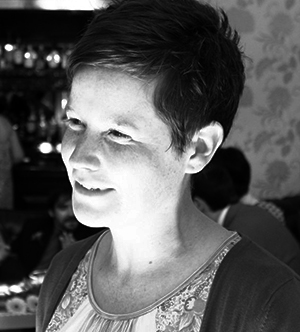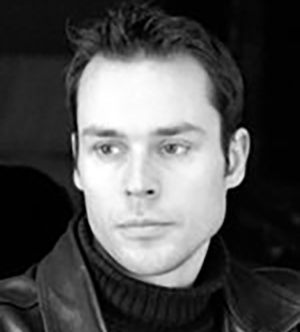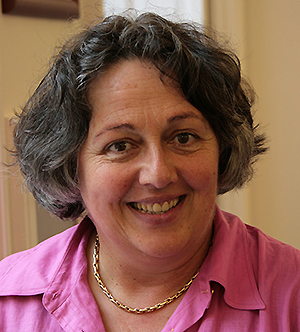 Rosi Braidotti (B.A. Hons. Australian National University, 1978; PhD Cum Laude, Université de Paris, Panthéon-Sorbonne, 1981; Senior Fulbright Scholar, 1994; Honorary Degree ‘Philosophiae Doctrix Honoris Causa’, University of Helsinki, 2007; Knight in the Order of the Netherlands Lion, 2005; Honorary Fellow of the Australian Academy of the Humanities, 2009) is Distinguished University Professor and founding Director of the Centre for the Humanities at Utrecht University. She was the founding professor of Gender Studies in the Humanities at Utrecht (1988-2005) and the first scientific director of the Netherlands Research School of Women’s Studies. In 2005–2006, she was the Leverhulme Trust, Visiting Professorship in the Law School of Birckbeck College, University of London. In 2001–2003, she held the Jean Monnet Visiting Chair at the Robert Schuman Centre for Advanced Studies of the European Institute in Florence. In 1994-1995 she was a fellow in the School of Social Science at the Institute for Advanced Study at Princeton. More
Rosi Braidotti (B.A. Hons. Australian National University, 1978; PhD Cum Laude, Université de Paris, Panthéon-Sorbonne, 1981; Senior Fulbright Scholar, 1994; Honorary Degree ‘Philosophiae Doctrix Honoris Causa’, University of Helsinki, 2007; Knight in the Order of the Netherlands Lion, 2005; Honorary Fellow of the Australian Academy of the Humanities, 2009) is Distinguished University Professor and founding Director of the Centre for the Humanities at Utrecht University. She was the founding professor of Gender Studies in the Humanities at Utrecht (1988-2005) and the first scientific director of the Netherlands Research School of Women’s Studies. In 2005–2006, she was the Leverhulme Trust, Visiting Professorship in the Law School of Birckbeck College, University of London. In 2001–2003, she held the Jean Monnet Visiting Chair at the Robert Schuman Centre for Advanced Studies of the European Institute in Florence. In 1994-1995 she was a fellow in the School of Social Science at the Institute for Advanced Study at Princeton. More
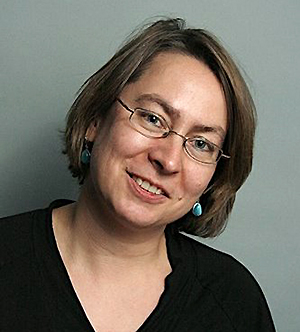 PD Dr. Antje Flüchter is historian of Early Modern European History by training and an Independent Research Group Leader at the Cluster of Excellence Asia and Europe in a Global Context in Heidelberg since 2008. Her project (consisting of herself and two PhD students) has a focus on the circulation and negotiation of knowledge between India and Europe in the process of state building. A new project (Jesuits in Asia and Europe – Transcultural Christianity and the Narratives of Christian Orthodoxy) is starting soon. She earned her doctoral degree in 2002 at the University of Münster (Celibacy between Norm and Deviant Behaviour. Church Politics and everyday life in Jülich and Berg in the 16th and 17th century) and her Habilitation in 2012 at the University of Heidelberg (From Diversity to a Single Truth: Images of Indian Statehood in Early Modern German Discourse, 1500-1700). Between 1997 and 2008 she was Assistant Professor at the Department of Early Modern History, University of Münster. Her fields of interest are transcultural studies, history of religion, cultural history of politics, confessionalism and gender history. More
PD Dr. Antje Flüchter is historian of Early Modern European History by training and an Independent Research Group Leader at the Cluster of Excellence Asia and Europe in a Global Context in Heidelberg since 2008. Her project (consisting of herself and two PhD students) has a focus on the circulation and negotiation of knowledge between India and Europe in the process of state building. A new project (Jesuits in Asia and Europe – Transcultural Christianity and the Narratives of Christian Orthodoxy) is starting soon. She earned her doctoral degree in 2002 at the University of Münster (Celibacy between Norm and Deviant Behaviour. Church Politics and everyday life in Jülich and Berg in the 16th and 17th century) and her Habilitation in 2012 at the University of Heidelberg (From Diversity to a Single Truth: Images of Indian Statehood in Early Modern German Discourse, 1500-1700). Between 1997 and 2008 she was Assistant Professor at the Department of Early Modern History, University of Münster. Her fields of interest are transcultural studies, history of religion, cultural history of politics, confessionalism and gender history. More
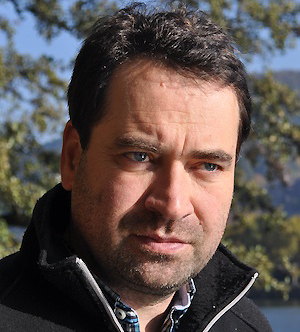 PD Dr. Stefan Herbrechter is Reader in Cultural Theory at the Coventry School of Art and Design, Coventry University. He studied English and French at Heidelberg University, and English literature at the Centre for Critical and Cultural Theory, Cardiff University. He is series editor of Critical Posthumanisms (Rodopi) and author and editor of a number of books on a variety of aspects in English and comparative literature, critical & cultural theory, continental philosophy, cultural and media studies. He is also a translator of cultural theory/philosophy from French into English (Derrida, Cixous, Stiegler). For more details please see http://stefanherbrechter.com.
PD Dr. Stefan Herbrechter is Reader in Cultural Theory at the Coventry School of Art and Design, Coventry University. He studied English and French at Heidelberg University, and English literature at the Centre for Critical and Cultural Theory, Cardiff University. He is series editor of Critical Posthumanisms (Rodopi) and author and editor of a number of books on a variety of aspects in English and comparative literature, critical & cultural theory, continental philosophy, cultural and media studies. He is also a translator of cultural theory/philosophy from French into English (Derrida, Cixous, Stiegler). For more details please see http://stefanherbrechter.com.
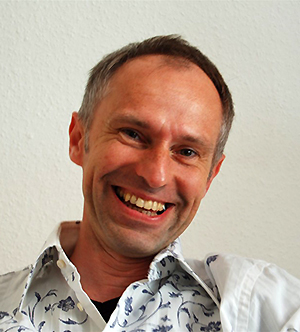 PD Dr. Michael Kempe is the Director of the Leibniz Research Center and the Leibniz-Archiv in Hannover and teaches early modern history at the University of Konstanz. He gained his PhD in 2000 with a book on early Enlightened theories of the biblical deluge and in 2009 his Habilitation with a book about the history of piracy and international law (1500-1900). He has teaching experiences, including interim chairs, at the Universities of Konstanz, St. Gallen, Frankfurt/Main, Heidelberg, Lecce (Italy), Trier and Berne. Between 2002 and 2006 he was a fellow at the Max-Planck-Institute for European legal history in Frankfurt/Main; and between 2006 and 2009 he worked as a assistant at the University of St. Gallen where he also co-founded and coordinated the new interdisciplinary doctorial program “Organization and Culture”. Until October 2011 he acted as the scientific coordinator of the Center for Excellence “Cultural Foundations of Integration” at the University of Konstanz and, together with Jürgen Osterhammel, as co-leader of the interdisciplinary PhD program “Cultures of Time”. His research and teaching cover a wide range of topics in early modern international and global history from European expansion and global history, history of European Enlightenment and intellectual history to environmental history, history of science and historiography of history. Concerning the topic of the Berne Winter School 2013 “Timing TransFormations”, he can offer in particular an expertise in the history of apocalyptic and catastrophist thinking, in early modern concepts of time, chance and contingency as well as in theories of the fall and decline of empires (e.g. theories of the “the falls of Rome”). More
PD Dr. Michael Kempe is the Director of the Leibniz Research Center and the Leibniz-Archiv in Hannover and teaches early modern history at the University of Konstanz. He gained his PhD in 2000 with a book on early Enlightened theories of the biblical deluge and in 2009 his Habilitation with a book about the history of piracy and international law (1500-1900). He has teaching experiences, including interim chairs, at the Universities of Konstanz, St. Gallen, Frankfurt/Main, Heidelberg, Lecce (Italy), Trier and Berne. Between 2002 and 2006 he was a fellow at the Max-Planck-Institute for European legal history in Frankfurt/Main; and between 2006 and 2009 he worked as a assistant at the University of St. Gallen where he also co-founded and coordinated the new interdisciplinary doctorial program “Organization and Culture”. Until October 2011 he acted as the scientific coordinator of the Center for Excellence “Cultural Foundations of Integration” at the University of Konstanz and, together with Jürgen Osterhammel, as co-leader of the interdisciplinary PhD program “Cultures of Time”. His research and teaching cover a wide range of topics in early modern international and global history from European expansion and global history, history of European Enlightenment and intellectual history to environmental history, history of science and historiography of history. Concerning the topic of the Berne Winter School 2013 “Timing TransFormations”, he can offer in particular an expertise in the history of apocalyptic and catastrophist thinking, in early modern concepts of time, chance and contingency as well as in theories of the fall and decline of empires (e.g. theories of the “the falls of Rome”). More


